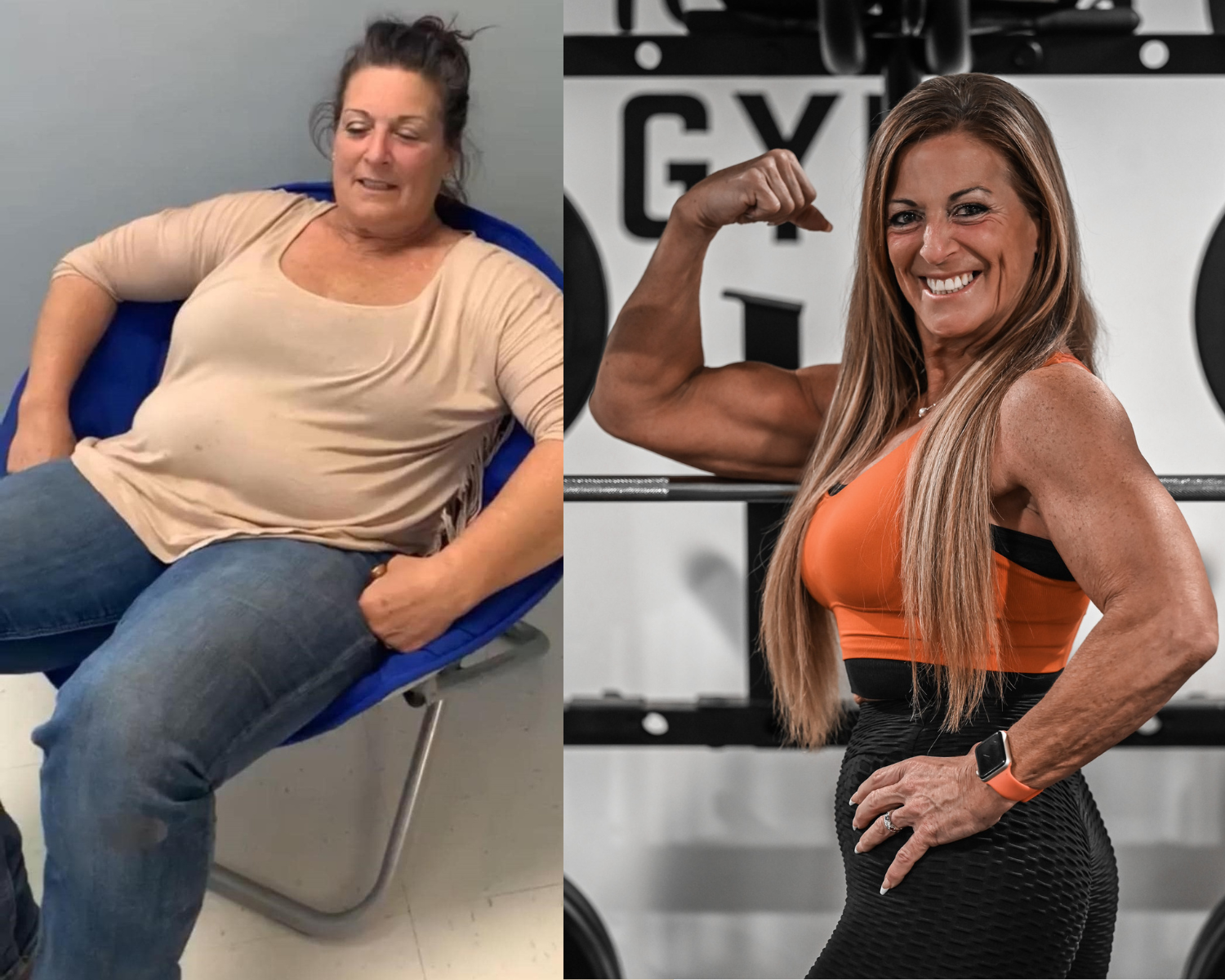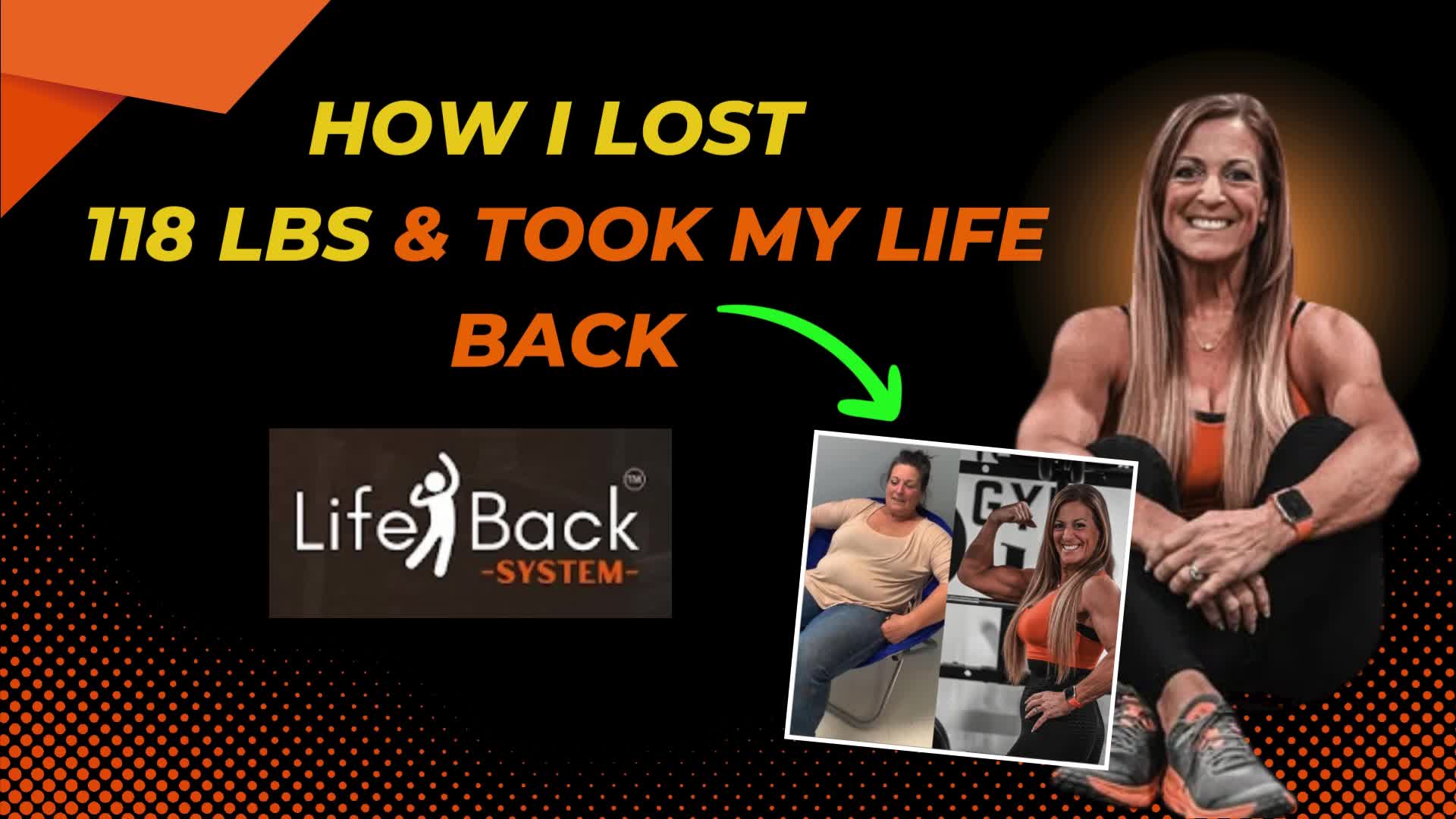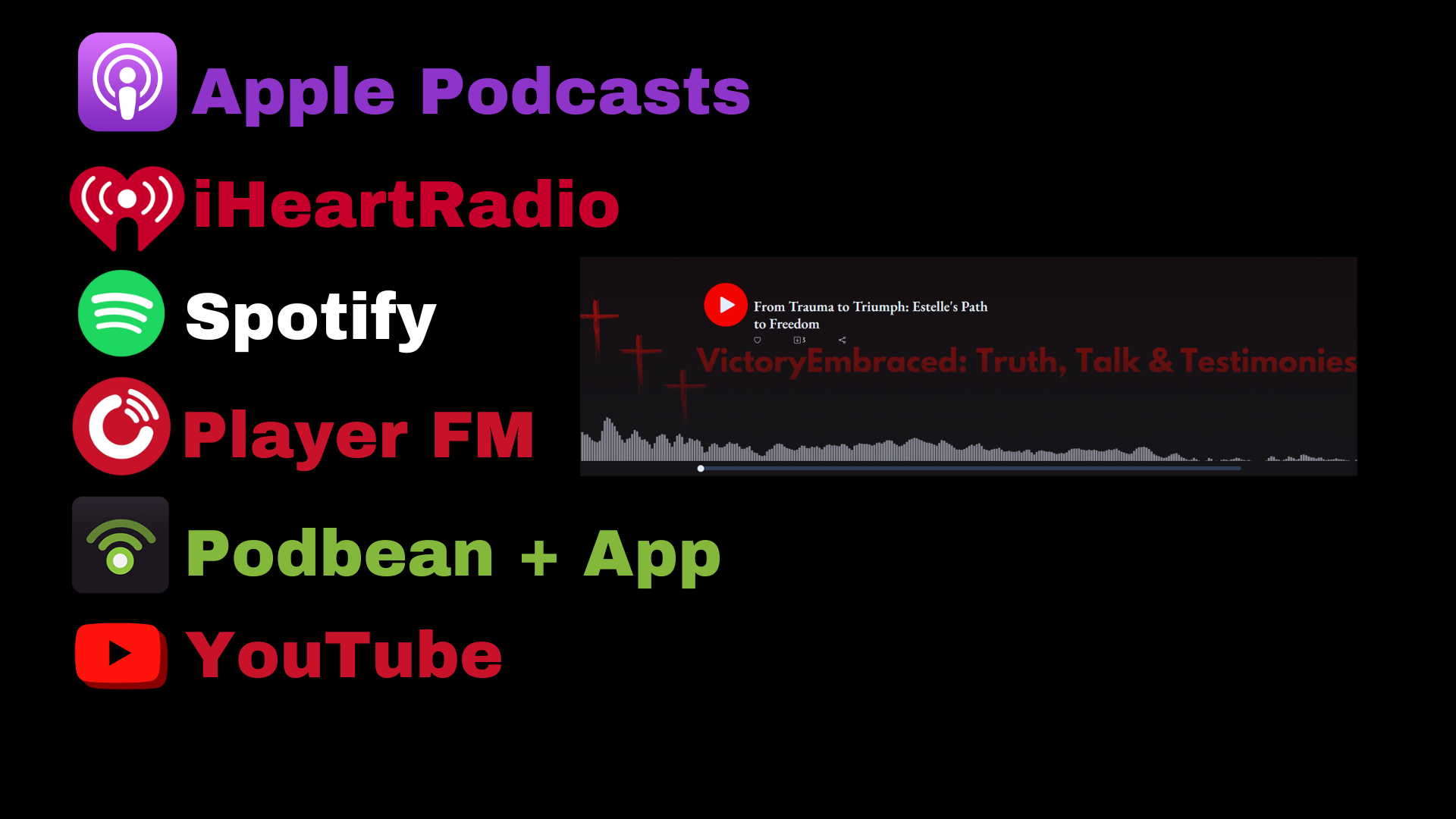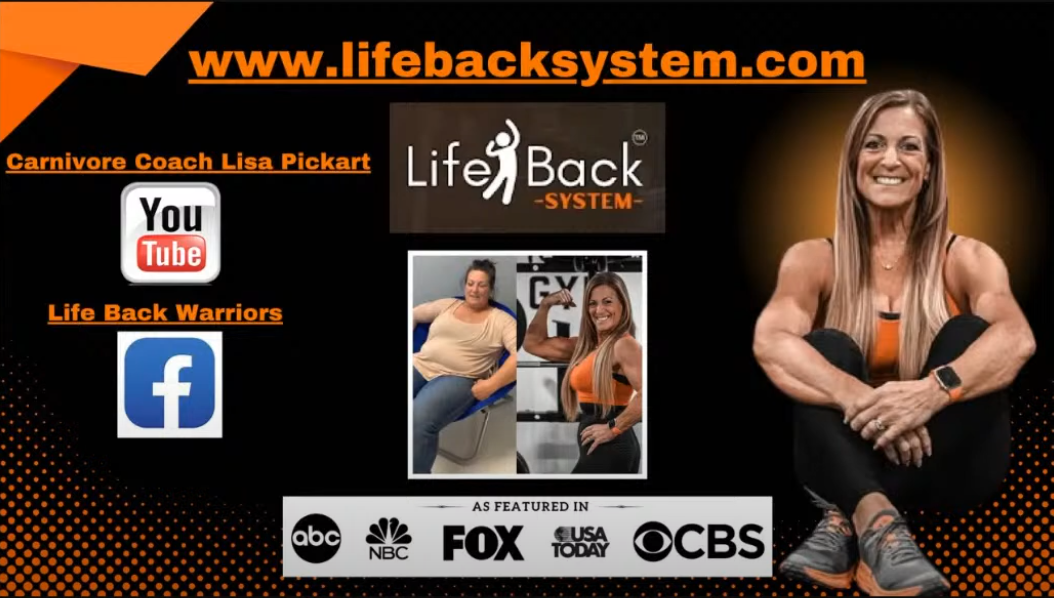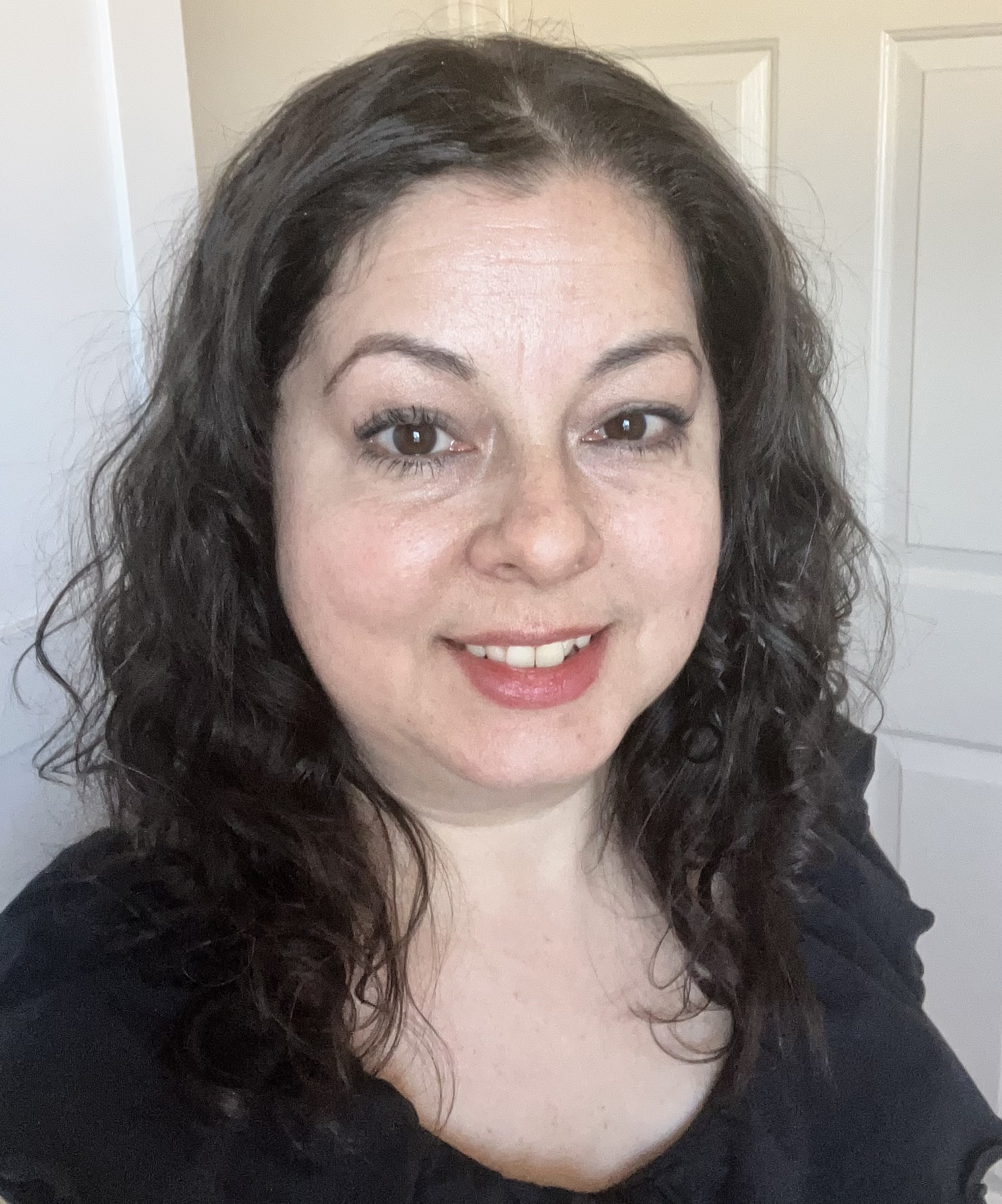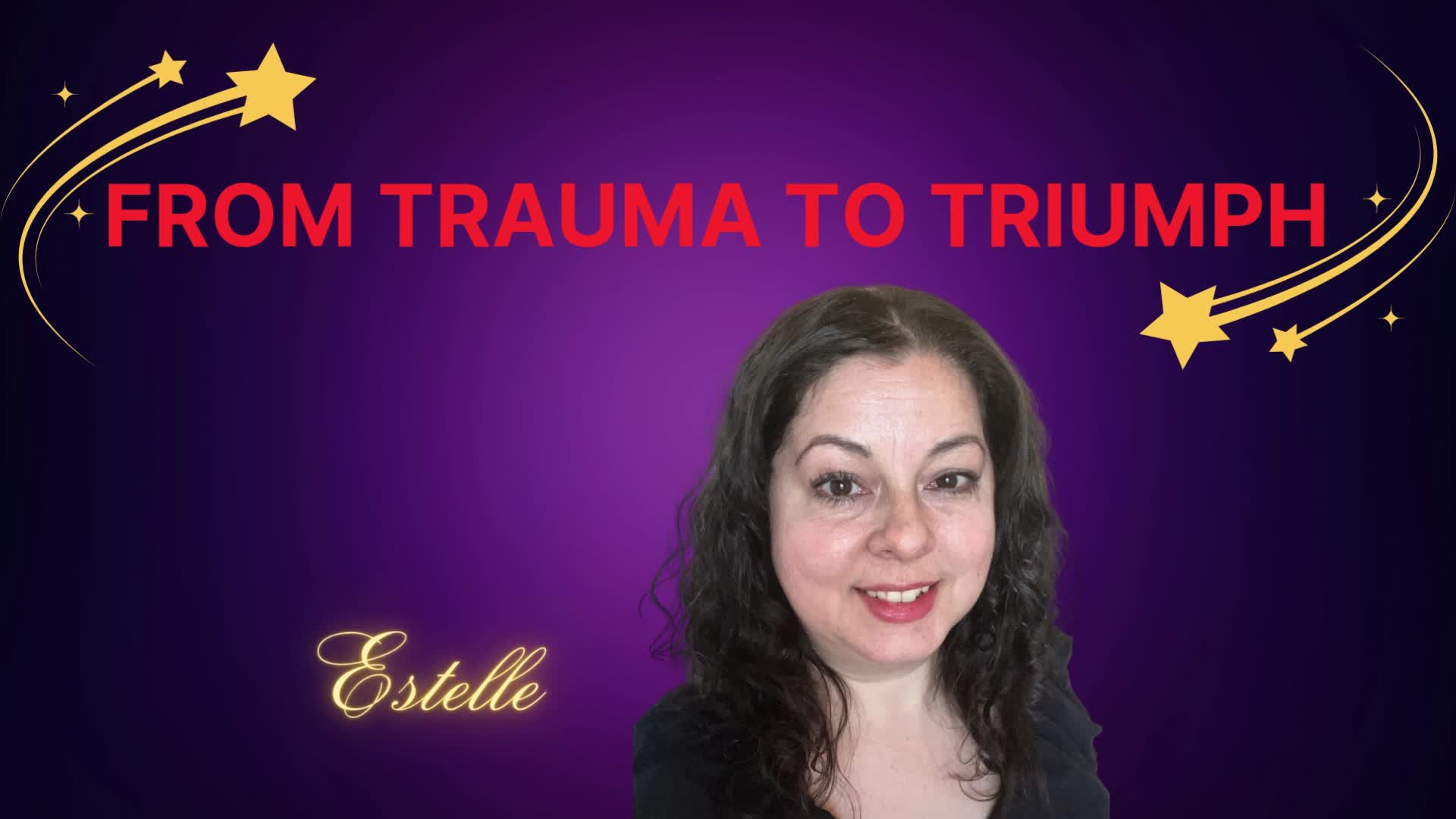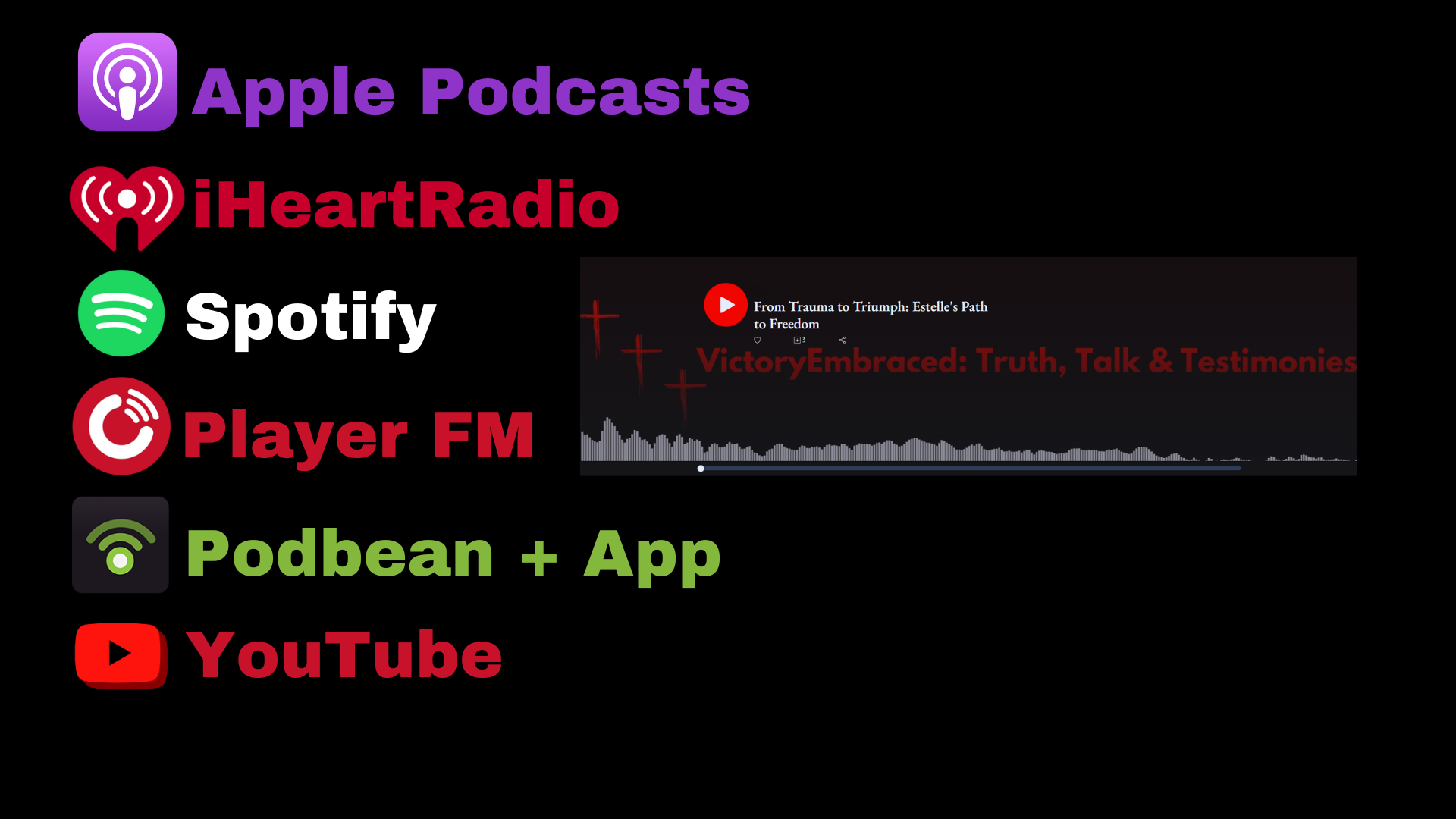Coach Lisa Pickart shares her powerful transformation story, detailing how she lost 118 pounds, reclaimed her health, and developed the LifeBack System--a transformative program designed to heal the liver, the foundation of lasting weight loss and overall wellness. Become inspired and encouraged to start your transformation journey as you read Coach Lisa's remarkable story of health and her unwavering faith in God that carried her through tough times.
Coach Lisa Pickart
Founder of the LifeBack System, Nutritionist, and Health Coach
These are Coach Lisa's favorite scriptures...
Coach Lisa Pickart shared her story on...
Coach Lisa's testimony is also on VictoryEmbraced: Truth, Talk & Testimonies podcast platforms
Lisa, you have been on an incredible health journey because you lost 118 pounds—I can’t even imagine each step you took. But I know God was with you. What was your turning point? Because I know, from your bio you shared, that you had a lot of inflammation, thyroid disease, and fibromyalgia. What happened?
I want to hit two separate sides here—one side is health, and the other side is spiritual. And then, of course, you have a mind that connects your body with the spirit, right? And sometimes, that can be a battle. We’re brought up one way: we hear certain things and come from different spiritual backgrounds and denominations. We have all of this pre-imprinting going on between birth and 18. During that timeframe, we also can have a lot of baggage, which I embrace—my baggage—and I’m thankful for it because I think it’s crucial to acknowledge God through it. For instance, I have molestation on my belt, failing and accelerating grades, being a tomboy and outgoing, then teachers and people in our lives who speak negative things to us. I even had a fifth-grade teacher tell me, “The way you smile and laugh all the time, you’re never going to amount to anything but a high school cheerleader.” So these voices go on; that’s just the external, but we have what was going on internally. Parents try their best. There are a lot of dysfunctional homes, and even functional homes can be dysfunctional.
So, I did a lot of yo-yo dieting and had a mom who also did the same. My mom was from the era of Joan Crawford and Elizabeth Taylor and raised me with an extravagant approach to fashion, hair, and makeup. I was the youngest of three girls. And so, having two older brothers, I became pretty athletic, definitely more of a tomboy. There were a lot of words from my father, whom I adore, who will now be 93 next month and is my strength internally. I wouldn’t have had my current strength without my father raising me, but his approach could have been better.
Jumping into my 30s and 40s, signs of menopause started. At 36, I was told that I should have a hysterectomy because cancer cells were present with a Pap smear. Having a hysterectomy didn’t seem right to me. Why would we lose our uteruses and ovaries? Thankfully, I didn’t listen to the doctor’s recommendation because, at 46, I had a child—I did lose six children before her in miscarriages. Still, I didn’t know at 46, when I gave birth, that 12 years later, we would be faced with losing her father. The next day after Eliya was born, I got sick every day for months. I thought I had food poisoning because everything I ate made me ill. It escalated to where I was afraid to eat anything. Well, now we know that it was liver disease and gallbladder disease, which were feeding hyperthyroidism. I ended up with thyroid eye disease, in which my eyes popped out of my head.
The underlying cause was a lot of stress, having a child later in life, being on the road, traveling worldwide, and blowing up buildings for our business. The stress kept building inside me, but God always told me it was okay and that He would go before me. We had a child on the road and were living in a vehicle 12-14 hours a day—driving 4,000 miles in four days is pretty intense, and then stopping to breastfeed—it was a lot. I felt like I was Wonder Woman, but I was getting sicker, and the inflammation was getting worse, to the point where my blood circulation was horrible. I started getting blood clots and neuropathy in my feet, and my health was snowballing. The bigger picture wasn’t about me but God's plan. When Eliya was shy of 12, she woke up one day and told me she didn’t want to travel anymore. I responded to her by saying, “Well, you know what? You were born into this life, and God has given it to you.” She is the youngest of the first six, and the others already left the house. Also, we did ministry on the road—we spoke at churches, went to many places, and wore three crosses on our construction hard hats, sharing God’s Word with everyone. Eliya begged me and shared her heart that she wanted to be a normal child and be home on the ranch with her horses.
So I went to my husband, Eric, before he passed away; he wasn’t even sick that we knew of. And I told him, “This is going to be difficult, but you’ll need to take the guys on the road. Then, I will fly in for the day of the blast and do the implosions. He was surprised, but I explained her importance: she’s deeply knowledgeable in Scripture, loves the Lord, has been baptized, and has baptized other children. I said, “She wants to be home for a reason.” I ended up taking on three grandchildren in full custody and raising them. Eliya and one of them are the same age, so we call them Irish twins because they were born six weeks apart, and then there’s one 18 months older and one 18 months younger. So, I was raising four, and we were on the road, just living life. There were a lot of undercurrents, like a riptide in the ocean, but the boat was still floating on top. Amid everything, I was still yo-yo dieting and would gorge and get sicker every day. When I started getting deeper into reading the Bible, the Lord showed me that gluttony and worry are sins. At this time, I was 57 and nearing 58, and we needed to go to two overbooked jobs, so Eric went to Atlanta and called me. He was coughing badly, and I said, “You don’t sound good. You need to go to an urgent care.” Urgent care told him he had walking pneumonia. We have our family Christmas time in Idaho, and nobody knows that Eric is dying of cancer—even Eric. This persistent cough wasn’t going away, so he went to the emergency room with some prompting. I noticed that he was getting weaker.
When they diagnosed Eric, I wasn’t with him, as I was in Washington with the girls, and he was in Idaho when he called me after he collapsed in the driveway. I told him to call 911, so he called them, and then they called me to tell me they had a man in my driveway. I told them, “Yes, that’s my husband… please get him to the emergency room.” They life-flighted him to the hospital and took out four gallons of fluid from his lungs. And he called me and said, “Yeah, I’m sick, but it’s a blessing and proceeded to tell me that he has cancer. I dropped to the ground and was crying and didn’t hear the rest of the conversation. He then told me that if he had come in six months earlier, he probably could have fought it, but there wouldn’t be a fight because he was surrendering. Eric gets restored either way, and he believes that God will heal him on this planet or in heaven. I was bawling, and it was hard talking without getting emotional. It was a blessing for Eric because he loved the Lord so much, but the news was excruciating for me. I told the kids to start packing up so we could head back home to Idaho and told Eric that I needed to be with him, but Eric interjected and said, “No, no, no… You don’t need to be with me. Jesus is with me. I’ve already been through the garden… It’s going to be fine. Please take care of the girls, enjoy the weekend, and then when you come back, stop by the hospital.”
I was feeling overwhelmed, and everything in my life started getting a hundred times worse, including my weight. I asked Eric why he felt like having cancer was good news, and he replied, “Because it’s mesothelioma. We need to tell the family immediately because both of my grandparents died from mesothelioma, and the odds are that because I was by them, I got it off of their clothes.” Mesothelioma is a tiny spur that gets in your lungs. I said, “Are you sure it’s not from work?” He says, “No, I’m positive I got it from my grandparents because it takes 40 years to rear its ugly head." So I was like, okay, “I’m going to try to find the blessing in this.”
Upon our arrival at the hospital, he was in a jolly mood and felt great, in contrast to my frazzled and absolute basket-case state. I was the woman; when we weren't near each other, I almost thought I couldn’t breathe—our lives were so intertwined and meshed. I knew I needed to trust the Lord wherever He took this. I needed to be strong and believe we’re going to make it, so every day, I would say to God, “God, your will over mine, your will over mine, your will over mine, whatever that looks like, Lord, but I’m going to ask you that you hold me and direct me because you know what it will take for me to process this because I’m a person who is a long thinker, I don’t make rash decisions, and I like to plan.” The oldest was 14, then there were double 12s and a 10, and they asked, “Mom, why do you feel like crying when Dad’s dying? And I said, Well, that’s an excellent question.” At that moment, God reminded me how we raise our children to trust the Lord. Suddenly, I doubted if I was fully trusting God, and I started to question my faith because I was asking myself, do I trust? One day, one of my daughters said, Mom, put your arms out. I’m going to jump to you," and at that moment, I knew the Lord was saying… “My arms are up… Jump.”
On March 19th, the hospital said, “Go home and get your affairs in order. And my husband goes, “You don’t know my God; you don’t know what He has in store. Don’t tell me I’m dying,” but we all knew that the tumor had moved over on top of his aorta, and he could no longer breathe. His breath was getting shorter and shorter. And from that day, March 19th, to April 1st, it was the time that it took for his body to shut down and pass away.
I was very ill during this time, but I had to put my health aside because caring for Eric and our children was the priority. It wasn’t about Mom; the children were quickly learning this new way of life. We had 200 acres to take care of, running the dozer and tractor, changing the oil, cutting wood, and taking care of the horses and cows, and the girls stepped in and took care of things. We all laugh about it because they learned so much in a short time that maybe they would have never learned had we not gone through this challenge.
It was about three days before Eric passed that our youngest asked me while breaking down in tears, “I don’t understand why God is so mean.” I said, “He’s not, but one by one, He calls us home, and this is your goal to get yourself there one day too… It takes a lot of courage to have that faith, just like you do with me. You trust me every day, but I don’t want you to trust me—I want you to trust that God knows what’s best for our family.”
We turned our family room into an area for everybody to sleep, hang out, and spend those last hours together. We had a lot of visitors that week who came and prayed over him and said their goodbyes. Eric had been incoherent those previous days because of the morphine. The pain had gotten to where it was excruciating. You know that marriage isn’t always perfect—it doesn’t matter who you are because we’re all broken people. Eric looked at me and said, “I’m sorry for everything.” And I said, “Oh, we’re good. You are so forgiven. Don’t worry about it. It’s all good." And then, he told me, “I love you,” and his eyes never opened again or spoke another word. After he passed, I got the girls, and there was a lot of crying and hugs.
The next night after Eric’s passing, we remained very quiet—we spoke few words but shared a few jokes and memories. When I woke up, four girls were in bed with me, which they never did before. I said good morning to them, and everyone said, “Are you ready? What are we going to do now?” In my head, I was wondering that I had no clue because I needed to shut my business down; I was facing losing the property and finding a new place to live, and suddenly, I replied in faith to the girls, “We’re going to live and love life and celebrate.” My favorite Scripture that came to mind about our day of death is more significant than our day of birth is Ecclesiastes 7:1. So I said, "You know what, we’re going to live, and we’re going to love life." I embraced all four of them and said, “All I can tell you is that when I had you guys and looked at you, that was the greatest moment of my life. Dad is in heaven in the arms of the Lord, and that is a time to rejoice. Now, it’s our books and chapters that we need to live for God.” To this day, they all serve God, and their goal is to get home to heaven, and we’ll all be reunited.
A couple of days went by, and I realized that I was getting sicker. And it scared me because I was the only surviving parent. It was a significant burden, and the stress was pretty high financially. Eight months went by without health insurance, and finally, I got some coverage through the state for myself and the girls for dental and essential health. I made a doctor’s appointment for myself and was informed that my liver wasn’t good, my thyroid had Graves disease, and my body was acting like an 88-year-old woman and getting closer to shutting down. Then, the sheriff notified me that they would be taking the property, and we didn’t have a place to live. In between everything, I had people stopping by to ask if they could start helping us pack or move the animals. The children became agitated, saying, “Do not touch my dad’s clothes. We’re not leaving this property. God’s going to save our house.” A lot of hope was going on amid everything else. I told the girls, “Maybe God has a bigger plan, and because we’re stuck in our chapter, we can’t even see the great gifts coming to us.” I noticed that as soon as I started seeing the picture in a different light, they, too, increased in hope and faith for our future. It was also at this time that I could hardly walk.
The children were grocery shopping for me, which was usually my responsibility. I gave them the money and told them what to get on the cell phone, so we were a wreck. However, their willingness to take on this responsibility showed their maturity and understanding of our situation, which was a source of pride and inspiration for me. We had a feast on Thanksgiving Day, and on December 4th, we needed to surrender our home. Out of nowhere, this lady I don’t know told me they had some cabins—they didn’t have running water or a toilet. Still, if we wanted to put our horses on the back property and bring the girls, she would give them to me. Four minutes before the bank took the property, someone purchased it, which helped me pay off my debt to Medicare. One business debt was handled, and I was given a check for $25,000. So we had a little breathing room and had two weeks off the property, but we were packed up in four days. God closed the door; we were blessed to live there but needed to leave.
On Christmas Eve, we celebrated Christ, and New Year’s came; on January 7th, I received a call that my mother had only hours to live, and she passed on January 9th. It was overwhelming because I had one support system gone, and now another was, too. My thyroid had a considerable flare-up, and my eyes were now wholly extended from my head. It was a lot to deal with at one time with all the underlying pressure, but I heard God speak and say to me, “Are you trusting me?” All things are possible with God, according to Philippians 4:13. I needed to focus on the Lord and forget all things going on in my world—the stress, people, and anyone judging me—and it didn’t matter.
When my mom passed away, she left me $40,000, and another friend carried a mortgage on a house, so we lived there to help. It was a double-wide house, and it was me and the girls. The move-in day was April 1st, the first anniversary of Eric’s passing. I felt like the Book of Job, losing everything and then everything being restored. When we were moving into that house on Facebook, our reunion group from high school was praying for Eric and me, the girls, and the family. My high school sweetheart, who went to the Air Force, asked if that was Lisa because he didn’t recognize the married last name. A good friend of ours said yes and told him that her husband was sick and passed. Kenneth gave me a call but hit the camera by accident. He had never used the camera for a video call before, but he was shocked and said, “Oh, my gosh, there you are!” And on my side of the phone, before I answered, I said, “Oh my gosh, this guy I know is calling on video chat—I can’t talk; I’m broken, and my life is a wreck.” I got the courage to answer, and he asked if I was OK. I told him, “No, I’m so broken and don’t know how the future looks, and I can’t even comprehend anything that’s happened over the last three years.” He told me he would come to see me and would like to help us in any way possible. Here, we lived in a 1,100-square-foot double-wide, and we used to have a 5,000-square-foot home. COVID was going around, and we just got over COVID ourselves. I knew, though, to take one step at a time—put one foot in front of the other, and soon you’ll be walking out the door.
Kenneth and I started a relationship about a year later, and then we made plans to get married. He said, “If you’re not busy in four years, will you marry me? I’ve waited 45 years to marry you. Would you please marry me?” And I was like, “No, I’m a broken mess; I’ve got kids and all this other stuff.” Well, we finally decided to get married on July 3rd of 2021, and on July 1st, he had three grand mal seizures and was in the hospital. I dropped to my knees for the second time and said to God, “Lord, I can’t do this again. There’s just no way. I don’t understand. We’re going to be a family. We’re moving.” Clearly, in a vision, God showed me a drawn line in the sand, speaking to my heart, saying, “Lisa, everything on this side of the earth means the world to you, but on this side, it doesn’t mean anything to me—not the house, not the car, not the job, not the money. I need you. I need your thoughts, your faith, and your eyes. It will be OK if you trust me.”
While Kenneth was in the hospital, I told him that I didn’t think we should get married, and he responded, “If it’s the last thing I do before I take my last breath, we’re getting married.” So, the next day, we got married, and we watched him for three months for seizures.
Meanwhile, I made a phone call, and this phone call didn’t go to the person I called. The person who answered told me how he helps people heal their livers, and one of the root causes of seizures is liver dysfunction. One of the significant symptoms is if you had hepatitis C and now have liver cirrhosis, which was where Kenneth was. So we started changing our diets and a program immediately. That was in July, and by September, he needed to go in for blood work at the Mayo Clinic to see if he could be a candidate for a liver transplant. The answer was no because, after the age of 60, it gets less likely because the average age for a man to pass away is 74, so they would rather give that healthy liver to a healthy person than to an older one.
With this news, we quickly removed all chemicals from our house and stopped consuming carbohydrates and sugar—everything was gone—it was a struggle because you don’t realize how addicted to sugar you are. As a nutritionist, I went back, and I looked at every single scientific study and documentation from the beginning of time, moving all the way forward and searching for when fatty liver disease became the death of humans versus liver cirrhosis by alcohol. Like, when did that happen? So here I was, looking all this up. Big Pharma has been in bed with the FDA and the Food Administration. All the chemicals and stuff we’re getting in our system are the culprits of what’s destroying our liver.
So, now I’m on fire—I have a spark of light and am on a new adventure—and God is showing me so much, and it was Holy Spirit-led on how to heal the liver. So we pursued what we have been applying to our lives, and in January, we both went in for blood work, and for me, it was the first time in 5 years since I had blood work. I am on the back burner again because I went from caring for myself to caring for someone else. And my words of wisdom for anybody are that taking care of yourself is not selfish. It’s selfish not to because people need you. They ran the blood work, called us back a week later, and said, “There’s something wrong here.” And I said, “What do you mean?” And they said, “The blood work of the man we have from July is a man with one leg in the grave, and this blood work is like a 32-year-old man’s blood work.” I then asked the doctor what my thyroid looked like, and he told me that I didn’t have a thyroid issue. I told him, “No, I do; check my records. I have hyperthyroidism, Graves disease, thyroid eye disease, and a list of 12 autoimmune diseases. And he said, “Well, you don’t have them now. And I was like, “What!” And he said, “You don’t have anything. You have somehow or another had bad blood work, or something happened, but this is all gone.” So Kenneth and I were on to something and continued to follow a carnivore diet because everything else was spiking insulin and causing liver issues and brain fog. Then, a friend of ours heard that Kenneth had liver cirrhosis. He asked how he was doing and told him, “You’re not going to believe this, but we are one month from celebrating one year of life after he was told 30 to 90 days to live—they didn’t even want to do treatment or to have any hope for him because he was under 10% functioning of his liver. So obviously, God has bigger plans, and it has been an absolute miracle moving forward to today, the LifeBack name came because we all want our lives back—everyone wants to go to heaven, but we don’t want to go today—we want to get to the Lord and go to heaven, but if you’re called home today, are you ready to surrender everything and go?
When you are going through tough times, it seems you are stuck somewhere in the hallway, be steadfast about His business. Be faithful and immovable. 1 Corinthians 15:58. Even though he may not have opened the door or a window, and you don’t know where you’re going, you still need to be busy with His work. What does it mean to be about His business or work? Being a good disciple, having a sound mind, and following His lead. This is surrendering—literally every day, it was all about sweet surrender and trusting Him in the storm. He gives me an understanding that surpasses our own because He knows what’s best. We think that we know it all—that we’re brilliant—that we’ve got an education and degrees and experience and all this stuff, but He told me, “You’re just my child; you’re my child, and I’m your Father, and you need to listen to me.”
Through all this, and coming to today, the LifeBack System was birthed by a high school guy who introduced me to another guy, who became my business partner. He said, “Your story is incredible, and the information on the liver is so powerful to help people get their life back.” This is where the name was born because when God takes us through the journey or the wilderness, it’s not to have us have pain and sorrow—it’s having us draw closer to Him, so when the time comes, we are ready to go home. God is so faithful. God gave me His peace, not my own, and He was so profound in helping me understand that I’m just dust to dust; it’s just a blink or moment in time, and the future of me is in His hands, and how I was going to show my children to have the strength and courage and have blind faith and put everything in His hands.
